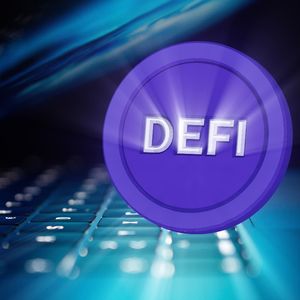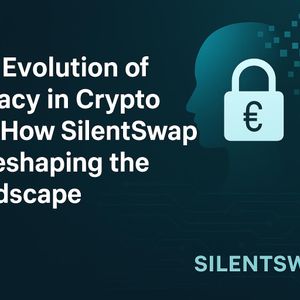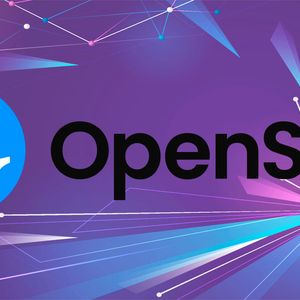The cryptocurrency world thrives on transparency and verifiable truth. But what happens when the very AI tools we’re starting to rely on for information and innovation are built on potentially murky foundations? A groundbreaking new study is sending shockwaves through the tech world, suggesting that OpenAI’s powerful models, including the much-hyped GPT-4, may have ‘memorized’ copyrighted material during their training process. This explosive claim reignites the fierce debate surrounding OpenAI Copyright practices and raises serious questions about the ethical and legal implications of AI development. Does OpenAI’s GPT-4 Exhibit Alarming AI Model Memorization? For months, whispers and accusations have circulated, alleging that OpenAI trained its cutting-edge AI models on a vast ocean of data that included copyrighted works. Now, a rigorous study from researchers at leading universities like Washington, Copenhagen, and Stanford seems to lend significant weight to these allegations. This research introduces a novel method to detect data ‘memorization’ within API-driven models like OpenAI’s. But what exactly does ‘memorization’ mean in the context of AI? AI models as prediction engines: Think of AI models as incredibly sophisticated prediction machines. They are trained on massive datasets to identify patterns and relationships within the data. This learning process is what enables them to generate human-like text, images, and more. The inevitability of memorization: While most AI outputs are original creations, the very nature of how these models learn means some degree of verbatim reproduction from the training data is unavoidable. Imagine learning a language – you’ll naturally repeat phrases you’ve heard frequently. Prior instances of regurgitation: We’ve already seen examples of this ‘memorization’ in action. Image models have been caught spitting out exact screenshots from movies they were trained on, and language models have been observed essentially plagiarizing news articles. Unveiling the Method: High-Surprisal Words and Copyrighted Content Detection The study’s ingenious approach hinges on identifying what the researchers term “high-surprisal” words. These are words that are statistically uncommon within a given context. Consider the example: “Jack and I sat perfectly still with the radar humming.” “Radar” is a high-surprisal word here because, in the context of things that hum, words like “engine” or “radio” are far more probable. To test for AI Model Memorization , the researchers cleverly masked these high-surprisal words from snippets of copyrighted fiction books and New York Times articles. They then challenged OpenAI’s models, including GPT-4 and GPT-3.5, to guess the missing words. The logic is compelling: if the model accurately guesses the high-surprisal word, it strongly suggests the model ‘memorized’ that specific snippet during its training phase. An example of the model guessing a high-surprisal word: “Jack and I sat perfectly still with the [MASK] humming.” – Model correctly guesses “radar”. Image Credits: OpenAI Shocking Findings: GPT-4 and the Memorization of Copyrighted Material The study’s results are nothing short of startling. GPT-4 demonstrated clear signs of having memorized portions of popular fiction books, notably including books from BookMIA, a dataset known to contain copyrighted ebooks. Furthermore, the research indicated that GPT-4 had also memorized segments of New York Times articles, although at a lower frequency compared to the fiction books. This raises critical concerns about the source material used to train these powerful AI models and whether Copyrighted Content was utilized without proper authorization. Abhilasha Ravichander, a University of Washington doctoral student and study co-author, emphasized the significance of these findings in a statement to Bitcoin World. She highlighted that the research sheds light on the potentially “contentious data” used in training these models. “For large language models to be truly trustworthy, we need the ability to probe, audit, and scientifically examine them,” Ravichander stated. “Our work provides a tool for this probing, but there’s a pressing need for greater data transparency across the entire ecosystem.” The Looming Legal Battle Over AI Training Data OpenAI is already facing a barrage of lawsuits from authors, programmers, and copyright holders. These plaintiffs accuse the company of illegally using their Copyrighted Content – books, code, and more – to train its AI models. OpenAI has consistently defended its actions under the “fair use” doctrine of copyright law. However, the plaintiffs argue that fair use doesn’t extend to the wholesale ingestion of copyrighted material for AI training purposes. This legal battle could redefine the landscape of AI development and intellectual property rights. Adding fuel to the fire, OpenAI has actively lobbied for more lenient regulations regarding the use of copyrighted data in AI training. While they have established some content licensing agreements and offer opt-out mechanisms for copyright owners, their push for broader “fair use” rules suggests a desire to continue utilizing vast datasets, even those potentially containing copyrighted material. The question remains: Can innovation thrive without respecting creators’ rights and ensuring data transparency? Key Takeaways and the Path Forward for AI Ethics This study is a wake-up call, underscoring the urgent need for greater transparency and ethical considerations in the development of AI. Here are some crucial points to consider: Transparency is paramount: The AI industry must move towards greater transparency regarding training datasets. Understanding what data is used to build these powerful models is essential for accountability and ethical development. Copyright and AI: A Legal Grey Area: The legal framework surrounding AI Training Data and copyright is still murky. This study adds weight to the argument that current “fair use” interpretations may be insufficient to address the scale and nature of AI training. Ethical AI Development: Beyond legalities, there’s an ethical imperative. Building AI that respects intellectual property rights and operates with transparency is crucial for fostering trust and long-term sustainability in the AI ecosystem. The Need for Robust Auditing Tools: Ravichander’s study highlights the necessity for tools that can effectively probe and audit large language models. This is crucial for identifying potential copyright infringement and ensuring responsible AI development. The Future of AI and Content Creation: The outcome of the legal battles and the evolution of ethical standards will significantly shape the future of AI and its relationship with content creators. Finding a balance that fosters innovation while respecting creators’ rights is paramount. The implications of this study are profound. As the cryptocurrency and blockchain space increasingly intersects with AI, understanding the ethical and legal underpinnings of these technologies becomes ever more critical. The debate surrounding OpenAI Copyright and AI Model Memorization is far from over, and its resolution will have lasting consequences for the future of both AI and content creation. To learn more about the latest AI market trends, explore our article on key developments shaping AI features.

















